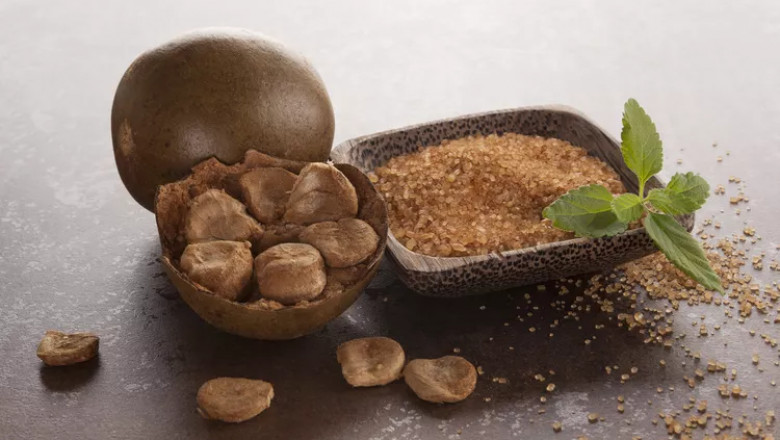views
Sugar has long reigned supreme in kitchens and cafes around the world, sweetening everything from morning coffee to baked treats. But as health awareness rises, people are seeking alternatives that satisfy their sweet tooth without compromising their well-being. One such contender gaining rapid popularity is monk fruit sweetener, and among the most trusted brands in this space is Lakanto Monk Fruit Sweetener. Available at the Pluugin Store, Lakanto promises all the sweetness of sugar—without the guilt. But how does it really stack up against traditional sugar? Let’s find out.
What is Monk Fruit Sweetener?
Monk fruit sweetener is derived from Luo Han Guo, a small round fruit native to Southeast Asia. Unlike sugar, which provides calories and raises blood glucose levels, monk fruit sweetener contains zero calories and zero glycemic index. The sweetness comes from mogrosides, natural compounds found in the fruit that are 150-200 times sweeter than sugar. Lakanto blends monk fruit with erythritol to offer a sugar-like taste and texture—making it one of the most popular choices for health-conscious consumers.
The Case for Sugar: Why People Still Use It
Despite health concerns, sugar remains widely used for several reasons:
-
Natural Source: Derived from sugarcane or sugar beets, sugar is seen by some as a “natural” product.
-
Taste and Texture: Sugar adds not only sweetness but also texture and caramelization, especially in baking.
-
Affordable and Accessible: Sugar is cheap and easy to find in any grocery store.
However, it comes with a long list of downsides—empty calories, spikes in blood sugar, and links to obesity, diabetes, and heart disease.
Why Lakanto Monk Fruit Sweetener is a Smarter Choice
-
Zero Calories, All the Sweetness
Unlike sugar, which has about 16 calories per teaspoon, Lakanto Monk Fruit Sweetener delivers sweetness without the caloric baggage. This makes it perfect for people managing their weight or reducing calorie intake. -
Diabetic-Friendly
One of the standout benefits of monk fruit sweetener is that it does not raise blood glucose levels. Lakanto is an excellent option for diabetics or anyone monitoring their blood sugar. -
Keto and Low-Carb Approved
Lakanto is a go-to sweetener for those following keto or low-carb diets. It blends seamlessly into recipes without interfering with your macros. -
Natural & Non-GMO
Lakanto uses non-GMO monk fruit and erythritol, making it a cleaner and safer alternative to artificial sweeteners.
Taste Test: Sugar vs. Lakanto Monk Fruit Sweetener
Many consumers worry that natural sweeteners come with a strange aftertaste. However, Lakanto’s formula closely mimics the taste of sugar, making it ideal for coffee, tea, desserts, and even sauces. Whether you're baking cookies or whipping up a smoothie, Lakanto holds its own in the kitchen.
Where to Buy It? Pluugin Store Has You Covered
If you're ready to make the switch, Pluugin Store offers a wide selection of Lakanto Monk Fruit Sweetener products—from classic white and golden sweeteners to monk fruit syrup and chocolate products. Whether you're shopping online or visiting in-store, Pluugin ensures quality and convenience in your health journey.
Final Verdict: Who Wins?
When it comes to health, versatility, and flavor, Lakanto Monk Fruit Sweetener is the clear winner over sugar. It allows you to enjoy your favorite sweet treats without sacrificing your well-being. While sugar may still have its place in traditional recipes, monk fruit sweetener offers a modern solution for modern health concerns.
Ready to make the switch? Visit Pluugin Store today and discover how Lakanto can revolutionize your relationship with sweetness—one guilt-free spoonful at a time.






















Comments
0 comment